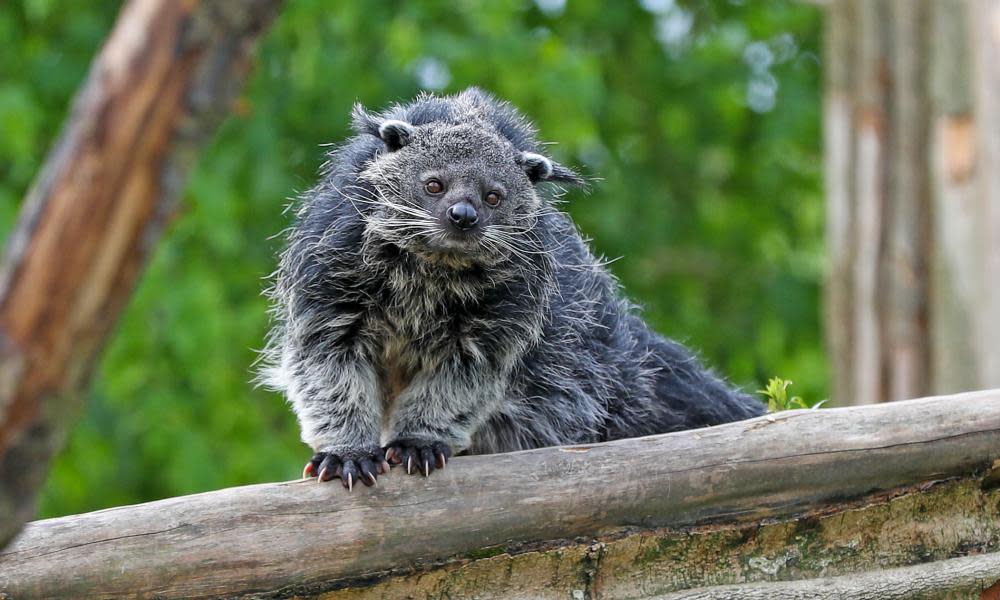Zoos may not survive as ministers insist that visitor ban must stay

Looking out across 130 empty acres of Chester zoo, Jamie Christon, the zoo’s chief operating officer, is furious. In a conference call last weekend with government officials, zoo bosses were told that while non-essential shops can reopen on 15 June, zoo gates were to remain closed “indefinitely”. This was despite the fact that Christon and other zoo chiefs across the UK insist they are able to make their attractions far more “Covid-secure” than Primark or Durdle Door in Dorset, where beachgoers were seen crowded together last weekend.
“While we see pictures of public beaches, parks and UK beauty spots busy with people, our zoo – a huge outdoor space, with 16km of pathways, and measures in place to ensure a safe environment for guests – sits empty,” he said.
“Just up the road from us in Warrington, Ikea reopened this week, an indoor space where social distancing will be much more difficult than outdoors.”
With revenue from visitors making up 97% of the zoo’s income, Christon says the long period of closure is having a “devastating impact” on the future of the UK’s most visited zoo, which he says may never reopen its doors again.
It costs £465,000 a month just to care for Chester zoo’s 35,000 animals. With additional outgoings for utilities, insurance, maintenance and security, as well as global conservation projects and scientific research, the zoo says it needs £1.6m a month just to keep going. To plug the gap, it is asking the public to adopt an animal, while other zoos have launched crowdfunding campaigns.

In London, Dominic Jermey is also in despair. As director general of the Zoological Society of London, he cannot reopen either London zoo or Whipsnade safari park, despite having “redesigned the whole experience at our zoos to make them Covid-secure”.
He said he couldn’t understand the government’s rationale. “Our zoos should be part of the solution to Covid, providing Covid-secure outdoor experiences where a population emerging from lockdown can visit with confidence,” he says. “Instead, the longer we stay closed, the less likely we are to survive the lockdown.”
In Scotland, where the devolved government has been more cautious in easing lockdown restrictions, zoo bosses face a similar situation.
The Royal Zoological Society of Scotland said it will be ready to reopen Edinburgh zoo and the Highland wildlife park by the end of June, but has warned that being closed over the summer months could be “financially disastrous”.
A wide range of safety measures is being put in place by the wildlife conservation charity, which has had to borrow £5m due to the coronavirus pandemic and the closure of both parks.
In Colwyn Bay, the Welsh Mountain zoo, Wales’ national zoo, has also been “haemorrhaging” funds, according to Jen Jesse, director of operations and administration.
She said the zoo would have made at least £500,000 in the past two months, and that even with closed doors and 17 staff furloughed, a zoo is a very expensive endeavour.
“While we have cut expenditure, we cannot furlough our dedicated keepers. You cannot, basically, ‘switch off’ a zoo,” she said.
The government says it is working to understand how and when zoos and aquariums can safely reopen and says it provided a £14m support fund for English zoos but big zoos – including Chester and London – complain they were exempt.
Asked about zoos in the daily government briefing on Friday, the health secretary, Matt Hancock, said: “I very much hope that we can get zoos reopened in a safe and Covid-secure way, but of course it has got to be done in way that doesn’t allow the R [the virus reproduction rate] to go above 1.”
A spokesman for the Department for Environment, Food and Rural Affairs said: “We understand the challenges faced by zoos and aquariums but it’s vital that we do not move too quickly in reopening to ensure public health is protected.”


